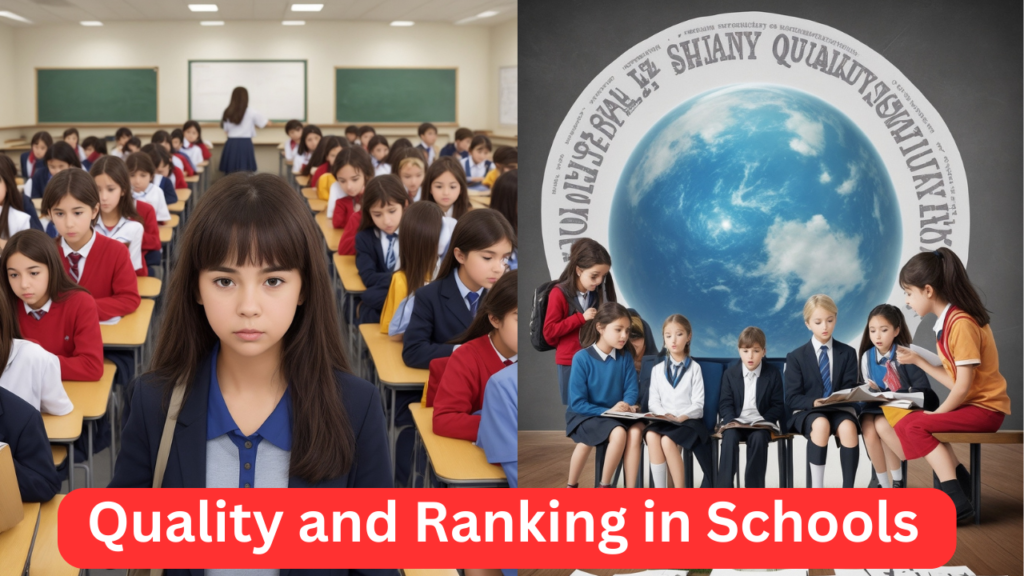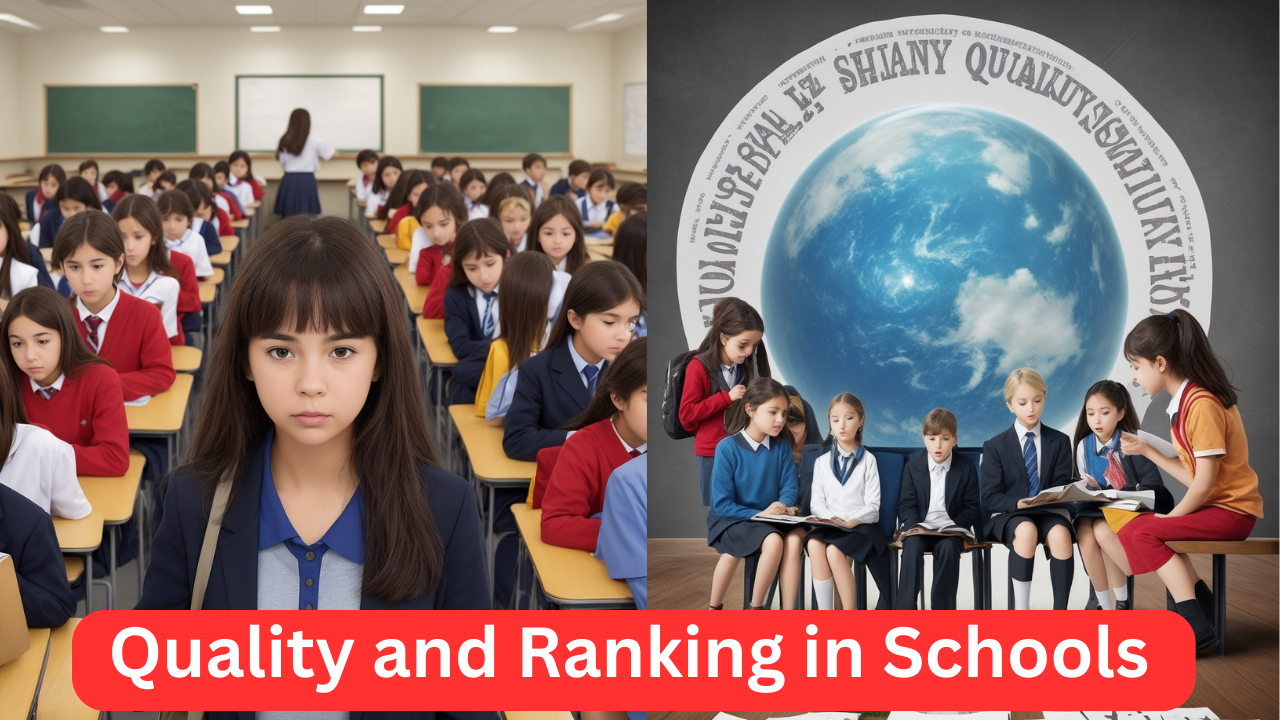The Importance of Quality and Ranking in School Selection: Ensuring a Lifelong Learning Journey

Introduction
Selecting the right school for your child is a crucial decision that can shape their educational journey and, ultimately, their future. The quality of education a child receives significantly impacts their cognitive and personal development. Therefore, it’s essential to evaluate a school’s quality and ranking before making this important choice. In this article, we will discuss why assessing a school’s quality is so important and how various aspects of a school can help you determine if it is the right fit for your child’s educational needs.

Education as a Lifelong Process
Education is a lifelong process, and it begins in the early years of a child’s life. It equips individuals with the knowledge, skills, and values necessary to lead fulfilling lives and contribute positively to society. While learning takes place in various settings, schools play a vital role in this journey, serving as the foundation for a child’s intellectual and personal growth.
The Role of Schools in Lifelong Learning
Schools are not just places of academic instruction but also environments where children learn social skills, critical thinking, problem-solving, and personal responsibility. They shape students’ values and help them discover their interests and talents. As such, the school you choose for your child can have a profound impact on their overall development.
Why Quality and Ranking in School Matter
- Educational Excellence: High-quality schools are more likely to provide an excellent education. They often have experienced and qualified teachers, well-structured curricula, and access to educational resources that can nurture students’ intellectual abilities.
- Personal Growth: A good school should foster holistic development, helping children build character, develop interpersonal skills, and cultivate a love for learning. A school’s ranking often reflects its success in achieving these goals.
- Opportunities: Well-ranked schools tend to have better extracurricular programs, advanced placement courses, and access to resources, which can provide students with a broader range of opportunities for personal growth and academic success.
- College and Career Readiness: High-quality schools prepare students for higher education and future careers. A school’s reputation and ranking can affect college admissions and job opportunities.
- Learning Environment: A school’s quality is closely related to its learning environment. Factors such as class sizes, teacher-student ratios, and classroom facilities can significantly impact the educational experience.
Ascertaining School Quality
To assess the Quality and Ranking in School, it is important to consider several key factors:
- Academic Excellence: Look at the school’s academic performance, standardized test scores, and graduation rates. These indicators can provide insights into the school’s commitment to academic excellence.
- Accreditation: Ensure that the school is accredited by a recognized accreditation body. Accreditation ensures that the school meets specific standards of quality and effectiveness.
- Teacher Qualifications: Review the qualifications and experience of the teaching staff. Qualified, motivated teachers are a cornerstone of a good education.
- Curriculum and Extracurricular Activities: Examine the school’s curriculum, available subjects, and extracurricular activities. A well-rounded curriculum and a diverse range of extracurriculars can enhance a child’s education.
- Class Sizes: Smaller class sizes typically allow for more individualized attention, promoting better student-teacher interactions.
- Parent and Student Feedback: Talk to current parents and students, or read reviews and testimonials to gain insights into the school’s strengths and weaknesses.
- School Culture: Visit the school to observe the learning environment and culture. A school’s atmosphere can have a significant impact on a child’s overall development.
- Student experience, knowledge, and skill development are a few of the benefits attached to the internationalization of schools through collaboration and association
Conclusion
Choosing the right school is a significant decision that can greatly influence your child’s educational journey and lifelong learning process. Assessing the quality and ranking of a school is crucial to ensure that it provides an environment where your child can thrive academically, socially, and personally. The role of schools in shaping the future of our children is invaluable, making the selection of a school a decision that should not be taken lightly. By considering various aspects of a school’s quality, you can help your child embark on a successful lifelong learning journey.
More articles
Readers are encouraged to read more such articles at
http://news24.edupedia.site/2021/08/22/universal-sound-om-ohm-aum-best-way-for-meditation/
Tribandh pranayam demonstration
Meditation in the classroom is like icing on the cake
Discover more from News 24 Media
Subscribe to get the latest posts to your email.


